Dementia Capable Virginia
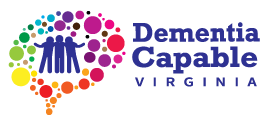 An initiative of the Alzheimer’s Disease and Related Disorders Commission
An initiative of the Alzheimer’s Disease and Related Disorders Commission
and the Department for Aging and Rehabilitative Services
Dementia Capable Virginia is an initiative of the Alzheimer’s Disease and Related Disorders Commission and the Department for Aging and Rehabilitative Services (DARS) with the support and collaboration of the Virginia Department of Health. This initiative provides training materials and other resources to realize Virginia’s Dementia State Plan.
For further information, please contact Dementia@dars.virginia.gov or George.Worthington@dars.virginia.gov.
Resources for Individuals and Families
Resources that can help if you are experiencing cognitive changes, or when you are providing care and support for a friend or family member
- Memory Assessment Centers Serving Virginians
- Virginia Dementia Road Map: A Guide for Families Impacted by Dementia
- Safety Concerns for People with Dementia
- Virginia Dementia Road Map Fact Sheets
- Healthy Brain Virginia Factsheets
- Taking Care, A Resource Guide for Caregivers
- Advance Planning for People Living with Dementia
- Dementia Fact Sheets
- Dementia Friends Virginia
Your feedback is requested! Virginia Commonwealth University and the Virginia Geriatric Education Center are developing programs to enhance dementia primary care. We want to understand how caregivers and care recipients feel about brain health and dementia care management they are receiving from primary care providers. Please take a few minutes to share your thoughts here.
Memory Assessment Centers Serving Virginians
There are several clinics that are either dedicated dementia and memory care clinics, or that include dementia and memory care services, that serve Virginians. Some of these may be located outside of the state.
|
Memory Assessment Center |
Telephone/ Fax |
|
CHAPEL HILL, NC
|
919.966.4401 (tel)
|
|
CHARLOTTESVILLE
|
434.924.2706 (tel)
|
|
EASTON, MD
|
410.820.5191 (tel)
|
|
MORGANTOWN, WV
|
304.293.3962 (tel)
|
|
NORFOLK
|
757.446.7040 (tel)
|
|
RICHMOND
|
804.828.0281 (tel)
|
|
SALEM (for veterans)
|
540.982.2463 (tel) Extension 2930
|
|
ROANOKE
|
540.981.7653 (tel)
|
|
SYKESVILLE, MD
|
410.552.3211 (tel)
|
|
WAKE FOREST, NC
|
336.713.8250 (tel)
|
|
WASHINGTON, DC
|
202.444.8525 (tel)
|
|
WASHINGTON, DC
|
202.741.2870 (tel) |
|
WILLIAMSBURG
|
757.220.4751 (tel)
|
Dementia Road Map: A Guide for People Impacted by Dementia
Updated in 2025!
This publication is a stage-by-stage guide to cognitive changes to help guide your journey:
- Information about Alzheimer’s disease and dementia
- Understanding the role of a caregiver (New!)
- What you should expect at each stage
- What you can do at each stage
- Recommended Action Steps
- Communication tips
- Resources to support you and your loved one
- Information on palliative and hospice care (New!)
You can download the Road Map here.
Safety Concerns for People with Dementia
This publication contains information and resources to help you keep your loved one safe:
- Home Safety
- Falls Prevention
- Driving
- Wandering
- Emergency Preparedness
- Elder Abuse and Financial Exploitation
You can download the Safety Concerns Toolkit here.
English ⬬ Español ⬬ Tiếng Việt ⬬ 中文 ⬬ 한국어 ⬬ العربية
Assistive Technology Options and Resources to Address Wandering
The Virginia Assistive Technology System works to raise awareness, accessibility and acquisition of assistive technology. This list of resources focuses specifically on options for helping prevent wandering.
Virginia Dementia Road Map Factsheets
English ⬬ Español ⬬ Tiếng Việt ⬬ 中文 ⬬ 한국어 ⬬ العربية
A brief guide to the stages of Alzheimer's disease and other dementias.
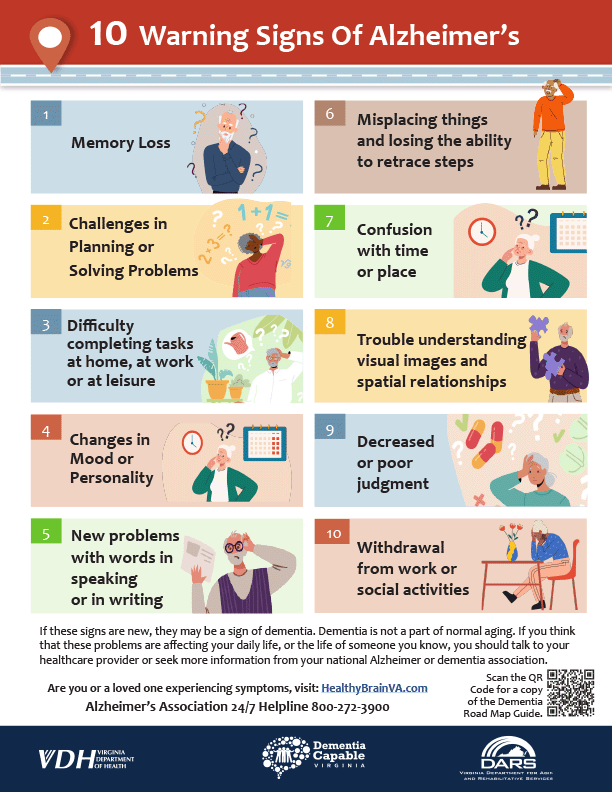 10 Warning Signs of Alzheimer's Disease
10 Warning Signs of Alzheimer's Disease
English ⬬ Español ⬬ 中文 ⬬ 한국어 ⬬ العربية
The ten warning signs and symptoms of Alzheimer's disease.
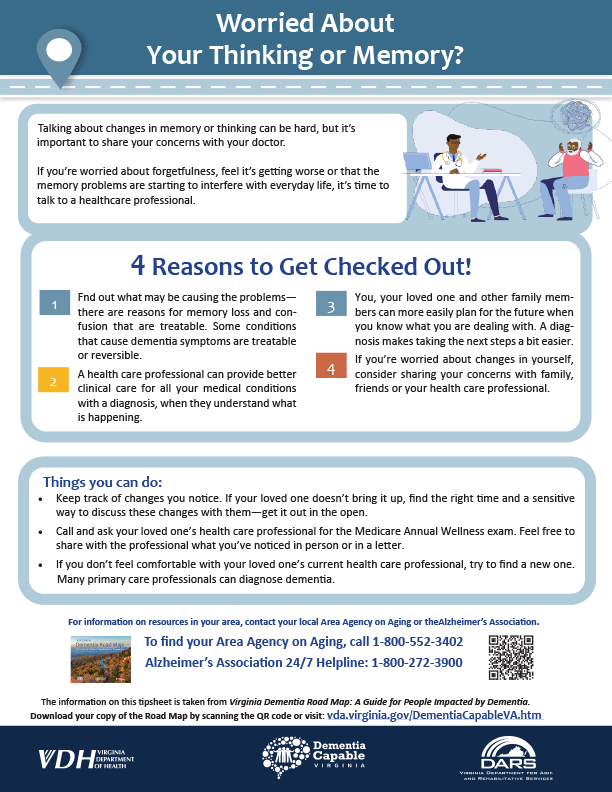 Worried About Your Thinking or Memory
Worried About Your Thinking or Memory
English ⬬ Español ⬬ Tiếng Việt ⬬ 中文 ⬬ 한국어 ⬬ العربية
Are you noticing some changes in you or a loved one? This will help guide you in how and when to talk to your doctor about getting an evaluation. Some causes of the symptoms of dementia are treatable and reversible, so it's always a good idea to get checked out.
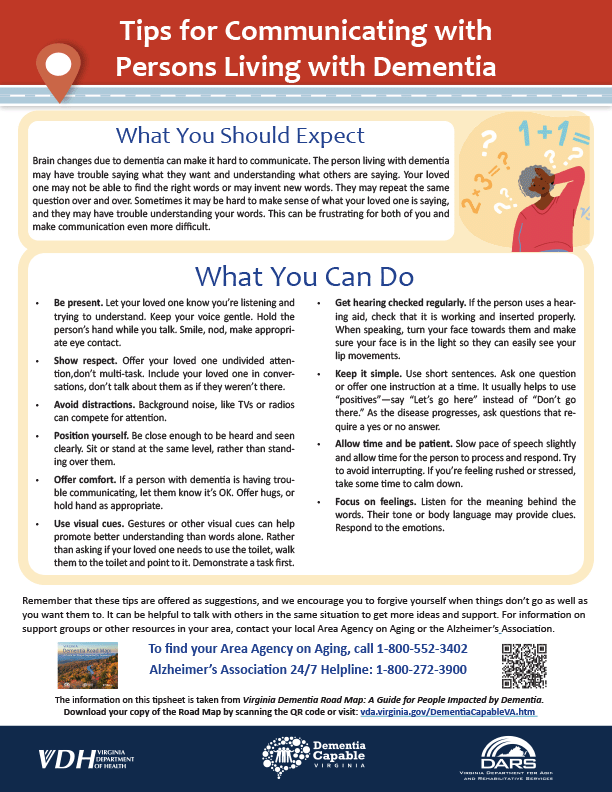 Tips for Communicating with People Living with Dimentia
Tips for Communicating with People Living with Dimentia
English ⬬ Español ⬬ Tiếng Việt ⬬ 中文 ⬬ 한국어 ⬬ العربية
Communication is a basic human need, and this short guide will help you think about how best to communicate with someone who is experiencing changes in their thinking or memory.
Healthy Brain Virginia Factsheets
Healthy Brain Virginia is an initiative of the Virginia Department of Health to help Virginians learn what they can do to help prevent, delay or slow changes to memory and thinking skills. Research is evolving rapidly, but there is plenty of evidence that shows that lifestyle changes can potentially help reduce your risks of developing dementia or even slow the changes associated with dementia. These Fact Sheets address a few of these lifestyle factors. For more, visit the Healthy Brain Virginia webpage to learn about how exercising, eating well, challenging your brain and maintaining your physical health can support your brain health.
Exercise and other physical activity have clear benefits for brain health and dementia risk reduction.
Quality sleep is also associated with better brain health. Download for some tips to better sleep.
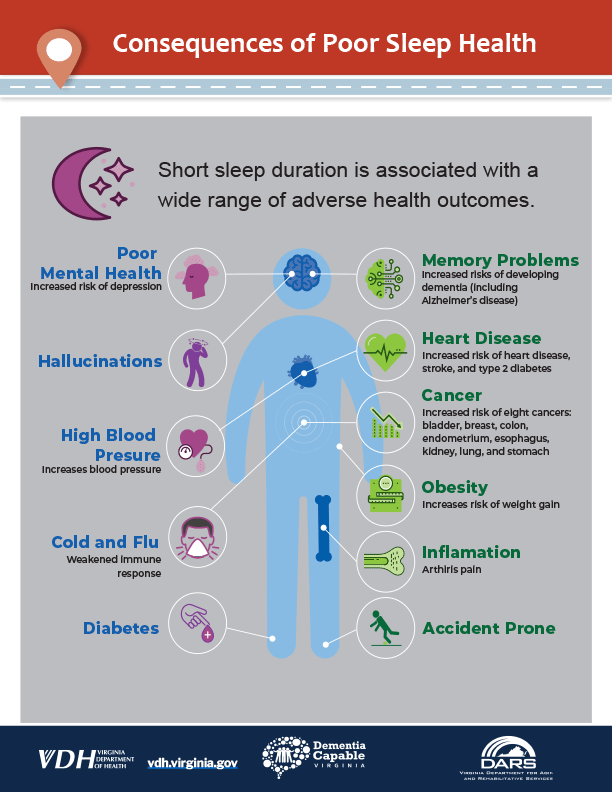 Consquences of Poor Sleep Health
Consquences of Poor Sleep Health
Our bodies do not cope well with poor or low quality sleep. Download to see how a lack of quality sleep can affect your physical and cognitive health.
Taking Care, A Resource Guide for Caregivers
This Guide for caregivers was created by the Virginia Caregiver Coalition and DARS. Although not dementia specific, there is plenty of information that can be helpful for people supporting someone living with dementia, such as:
- Caregiver Self-care
- Family Caregiver Checklist
- Medicare and Medicaid
- Area Agencies on Aging
Advance Planning for People Living with Dementia
Advance planning empowers people to make their own decisions about important topics like finances, health care, and living arrangements before the need arises. These guides should help people living with dementia and their family members or other care partners know what to plan for and how to get started. The guides cover 4 topics: 1) health care planning; 2) financial planning; 3) care planning; and 4) supporting someone living with dementia in making decisions.
Dementia Fact Sheets
These Fact Sheets can help you address specific challenges that you may encounter with your loved one with dementia.
Estes Fact Sheets pueden ayudarlo a abordar los desafíos específicos que puede encontrar con su ser querido con demencia.
Dementia Friends Virginia
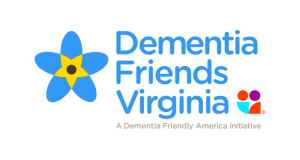 Dementia Friends is a global movement that is changing the way people think, act, and talk about dementia. Developed by the Alzheimer's Society in the United Kingdom, the Dementia Friends initiative to increase awareness and understanding of dementia, and reduce the associated stigma, is underway in Virginia. DARS and LeadingAge Virginia are the co-leads for this initiative, and offer free Dementia Friends Champion training sessions to train Dementia Friends Champions to deliver the interactive and engaging Dementia Friends information sessions in your community. To find out more about Dementia Friends information sessions or the Champion trainings, please visit Dementia Friends Virginia.
Dementia Friends is a global movement that is changing the way people think, act, and talk about dementia. Developed by the Alzheimer's Society in the United Kingdom, the Dementia Friends initiative to increase awareness and understanding of dementia, and reduce the associated stigma, is underway in Virginia. DARS and LeadingAge Virginia are the co-leads for this initiative, and offer free Dementia Friends Champion training sessions to train Dementia Friends Champions to deliver the interactive and engaging Dementia Friends information sessions in your community. To find out more about Dementia Friends information sessions or the Champion trainings, please visit Dementia Friends Virginia.
Resources for Health Care Professionals and Community Services Providers
Dementia Capable Virginia has sourced tools to help with screening, diagnosis, care coordination and care management in community settings
- Dementia Screening and Diagnosis
- Microlearning Modules for Primary Care Providers
- Primary Care Dementia Practice Toolkit
- Practice Protocols for Diagnosis, Follow-Up Care, and Appropriate Referrals
- Dementia Capable Training for Community Services and No Wrong Door Providers (e.g., Area Agency on Aging staff)
- Advanced Certified Nursing Aide Program
IT IS IMPORTANT TO DETECT COGNITIVE CHANGES EARLY!
Early detection and diagnosis allows:
- time for patients to plan for their own future
- access to available treatments
- reduced anxiety over symptoms
- opportunity to participate in clinical trials
Dementia Screening and Diagnosis
Learn to Use Screening Tools
General Introduction | ||
| Introduction to Cognitive Screening and Administration (22 min) | Communicating Cognitive Assessment Results (17 min) | Delivering a Diagnosis (9 min) |
Microlearning Modules for Primary Care Providers - newly updated in 2022
What is Microlearning?
Microlearning is an innovative way of teaching and delivering content in small, very specific bursts. It allows the learner to consume training in 5-10 minutes and apply new knowledge and skills quickly. Given the demands on primary care providers it makes sense that microlearning is a good fit. For best results view one lesson a week. This approach, as opposed to binge watching, helps you to recall and apply.
Why dementia training?
A number of studies identified that there are real opportunities to improve the interface between patients with dementia, their care partners and their primary care providers. This training focuses on person-centered approaches to caring for patients and the content is from the perspectives of people living with dementia and their care partners.
Primary Care Dementia Practice Toolkit
The Primary Care Dementia Practice Toolkit includes screening tools, links to brief training materials, information on billing codes and memory assessment centers, protocols for follow-up care and care coordination, and provision of appropriate referrals. The Toolkit follows four steps to improved dementia care:
- Cognitive Screening
- Refer for Diagnosis
- Follow-up Care Planning and
- Referrals for Services and Supports
For further information or to provide feedback, please contact the Dementia Services Director at george.worthington@dars.virginia.gov or call 804-662-9154.
Practice Protocols for Diagnosis, Follow-Up Care, and Appropriate Referrals
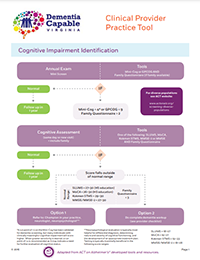 Clinical Provider Practice Tool
Clinical Provider Practice Tool
Walk through dementia screening, diagnostic work-up and management. Includes a discussion around disclosing a dementia diagnosis.
Provide this resource to the patient and family. This will help them think about next steps and connect them with resources and supports available in the community.
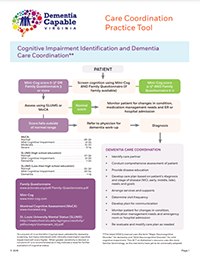 Care Coordination Practice Tool
Care Coordination Practice Tool
This tool can help your practice coordinate care for those diagnosed with dementia. This tool includes a care plan checklist and stage-by-stage description of dementia progression.
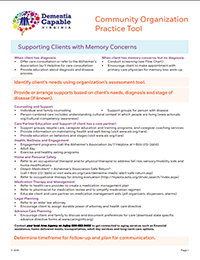 Community Organization Practice Tool
Community Organization Practice Tool
This tool is aimed at organizations and agencies that provide services and supports in the community for people living with dementia, their families and care partners/caregivers.
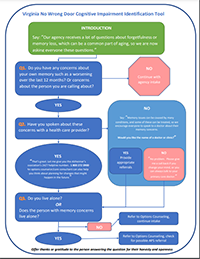 Virginia No Wrong Door Cognitive Impairment Identification Tool
Virginia No Wrong Door Cognitive Impairment Identification Tool
This tool will help your organization identify people with memory concerns during intake in order to provide them with appropriate referrals, services and supports.
Dementia Capable Training for Community Services and No Wrong Door Providers
Welcome to the dementia training designed to expand and standardize dementia knowledge within the No Wrong Door network, and for Community Services providers generally. These trainings utilize quality, publicly available modules. Please choose the role that most closely fits your needs: Information and Referral Specialist, Options Counselors or Care Transitions Coaches. If you do not recognize these terms, but work regularly with families living with dementia, please select Options Counselors.
After you have reviewed the trainings, please answer the quiz questions. You have three attempts to get a passing score. Once you have passed the quiz, you will receive a Certificate of Training within 15 business days. The modules each take about 2.5-3 hours to finish. If your agency's entire staff complete the trainings, DARS will provide you with a Certificate of Training for your agency. We encourage agencies to make this training part of staff onboarding to maintain dementia capability.
Any questions about this training initiative can be directed to the Dementia Services Director: George.Worthington@dars.virginia.gov or 804-662-9154.
These trainings serve as a minimum standard for being dementia-capable. Please contact the Dementia Services Director for help with any additional dementia training needs.
Thank you for your efforts to help make Virginia more dementia-capable! Please click on the links below to get started.
Advanced Certified Nursing Aide Program
Two Virginia-based organizations are continuing to lead an innovative initiative to address the health care workforce shortage by creating an opportunity for certified nurse aides (C.N.A.) to become leaders in the aging services field. The Advanced CNA Grant was awarded to LeadingAge Virginia, the association of nonprofit providers of aging services, by the Virginia Department of Medical Assistance Services (DMAS) with funding from the Centers for Medicare and Medicaid Services (CMS) Civil Monetary Penalty (CMP) Reinvestment program. The comprehensive educational program consists of classroom and clinical coursework developed by and executed in partnership with Northern Virginia Community College (NOVA). Students who complete the required coursework will be eligible to receive certification as Advanced Certified Nurse Aides, as provided by the Virginia Board of Nursing upon successful completion of the approved course through NOVA. Through the Advanced CNA grant, up to fifteen students employed by a CMS accredited Nursing Home facility are eligible to receive scholarships to complete the course. Classes are scheduled to begin in February 2023 and conclude in April. Information about the course and scholarships can be found here.
LEARN MORE ABOUT DEMENTIA RESEARCH AND OPPORTUNITIES TO PARTICIPATE
Research often cannot be done without the participation of members of the public who fit the relevant criteria. Dementia Capable Virginia supports participation in clinical trials as appropriate.
See why participation in dementia research is important:
CLINICAL TRIAL RECRUITMENT TOOLS
Alzheimer’s & Dementia Outreach, Recruitment & Engagement Resources (ADORE)
Hosted by the NIA, this is a repository of resources to support the recruitment and retention of participants into clinical trials and studies on Alzheimer’s disease and related dementias.
Recruiting Older Adults into Research (ROAR) Toolkit—in English, Spanish and Mandarin Chinese. Toolkit includes easy-to-use, customizable materials that feature information on:
- Why research is important to healthy aging
- What volunteers need to know about research studies
- How older adults can make a difference by participating
- Easy steps to take
Below is some important information for people considering taking part in research:
-
Participating in Alzheimer’s Research: For Yourself and Future Generations, a booklet from the National Institute on Aging at the National Institutes of Health, explores:
- how to find Alzheimer’s and related studies that might be right for you
- the benefits and potential risks to consider
- what happens when you join a trial or study
- how safety is protected
- questions to ask
- Alzheimers.gov Research on Alzheimer’s Disease and Related Dementia
- National Institute on Aging: Alzheimer’s Disease Education and Referral (ADEAR) Center
-
To find and sign up to participate in clinical trials, please visit:
- Alzheimers.gov Find Clinical Trials
- Recruiting Older Adults into Research (ROAR)
- Alzheimer’s Association: TrialMatch
- Alzheimer’s Prevention Registry
- Antidote
- Global Alzheimer’s Platform Foundation
- Caregiver Action Network
THE INTERNATIONAL ALZHEIMER’S DISEASE RESEARCH PORTFOLIO (IADRP)
The International Alzheimer’s Disease Research Portfolio (IADRP) database lists research efforts supported by public and private organizations in the US and internationally. All projects are categorized using the Common Alzheimer’s Disease Research Ontology or CADRO. Launched in 2010 as a joint collaboration between the National Institute on Aging (NIH) and the Alzheimer’s Association, IADRP enables users the ability to assess the portfolios of major organizations (currently 23) for areas of overlap as well as areas of opportunities in which to collaborate and coordinate in a collective effort to advance AD research. To access the IADRP, please visit: https://iadrp.nia.nih.gov/.
Since 1982, Virginia’s General Assembly has been supporting dementia research in the Commonwealth through the Alzheimer’s and Related Diseases Research Award Fund(ARDRAF) administered by the Virginia Center on Aging. You can also access information about these studies through the IADRP. To do this, use the “Funding Organization Name” Search category in the Quick Search box and select “State of Virginia”.
VIRGINIA RESEARCH FUNDING
Commonwealth Health Research Board
In 1997, the General Assembly passed and the Governor signed an act establishing the Commonwealth Health Research Board [CHRB or Board] and Commonwealth Health Research Fund [CHRF] to provide financial support for human health research in the Commonwealth. The Boards’ primary responsibility is to make grants for human health research, especially for those efforts that have the potential of maximizing human health benefits for citizens of the Commonwealth.
Research efforts eligible for support by the Board include traditional medical and biomedical research relating to the causes and cures of diseases as well as research related to health services and the delivery of health care. Since its inception, the CHRB has made 215 grant awards totaling approximately $17.8 million in grant funding to institutions of higher education and other not-for-profit or nonprofit organizations that conduct health or health-related research in Virginia.
The authority to invest and manage the assets of the CHRF is delegated to the Virginia Retirement System. The value of the CHRF as of March 31, 2018 was $38.8 million. Grants can be made to state agencies and state-supported institutions of higher education in Virginia, and nonprofit 501(c)(3) organizations located in Virginia. The Board solicits proposals annually for research funding to being in July of each year. Currently, awards can be made for either one or two years with a maximum award of $100,000 per year. Awardees are required to provide 33% of the requested amount as matching funds.
Interested researchers are encouraged to look at the CHRB website (www.chrb.org) for more detailed information regarding grant awards and the annual grant process. Grant applicants are required to comply with the CHRB Grant Guidelines and the CHRB Policies and Procedures which govern the CHRB’s grant application, review, selection, award, reporting and other post-award requirements and procedures. These documents are updated each year by July 1 and posted to the CHRB website.
Virginia Biosciences Health Research Corporation (Virginia Catalyst)
The Virginia Biosciences Health Research Corporation (VBHRC) or “the catalyst” (created in 2013) is funded by the General Assembly and Virginia’s major universities. Grants of $200,000 to $800,000 are awarded “to accelerate translational research and commercialization of breakthrough technologies in the life sciences”.
More information can be found here.
Virginia’s Alzheimer’s and Related Diseases Research Award Fund (ARDRAF)
The Alzheimer’s and Related Diseases Research Award Fund (ARDRAF) is intended to increase public understanding about how dementing illnesses affect individuals, families, caregivers, and society; support pilot projects from a broad spectrum of scientific disciplines; foster the application of knowledge about Alzheimer’s and related diseases; investigate the impact of these conditions on the Commonwealth of Virginia; and determine appropriate public policy.
The Virginia Center on Aging (VCoA) has supervised solicitation of applications, awarding competitive grants since 1982. The sizes of the awards vary, but are limited to $75,000.
More information can be found here at this link: Alzheimer's & Related Diseases Research Award Fund. You can subscribe to the mailing list on that page in order to receive news on funding opportunities and other information. For further information, please contact Dr. Faika Zanjani on fzanjani@vcu.edu.
Click below for abstracts and summaries of final reports for all projects awarded funds in that year.
| Award Year | Final Project Report Summaries |
|---|---|
| 2023-2024 | |
| 2022-2023 | |
| 2021-2022 | 2021-2022 |
| 2020-2021 | 2020-2021 |
| 2019-2020 | 2019-2020 |
| 2018-2019 | 2018-2019 |
| 2017-2018 | 2017-2018 |
| 2016-2017 | 2016-2017 |
| 2015-2016 | 2015-2016 |
| 2014-2015 | 2014-2015 |
| 2013-2014 | 2013-2014 |
| 2012-2013 | 2012-2013 |
| 2011-2012 | 2011-2012 |

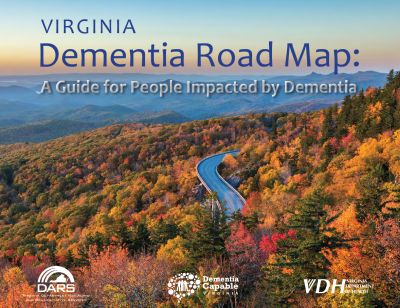
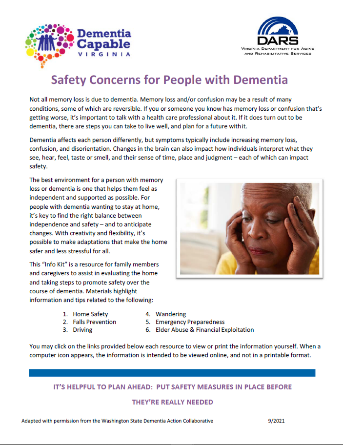
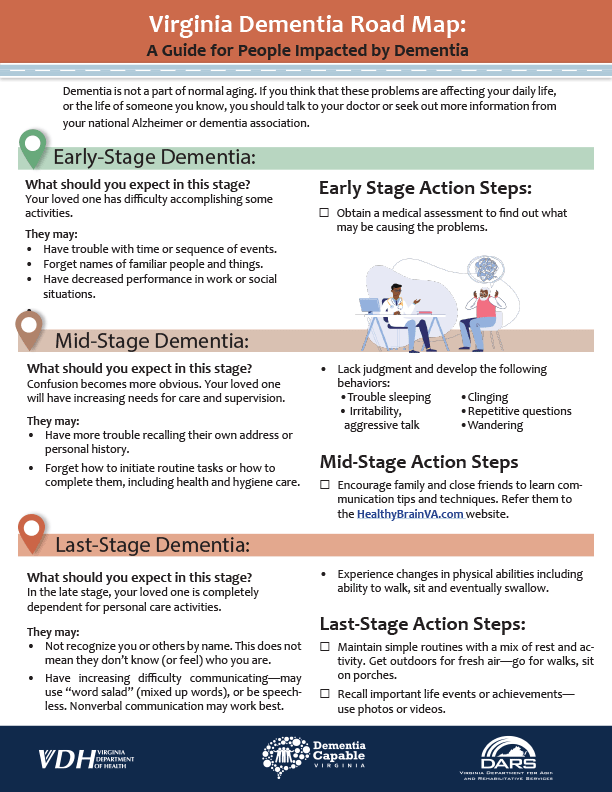
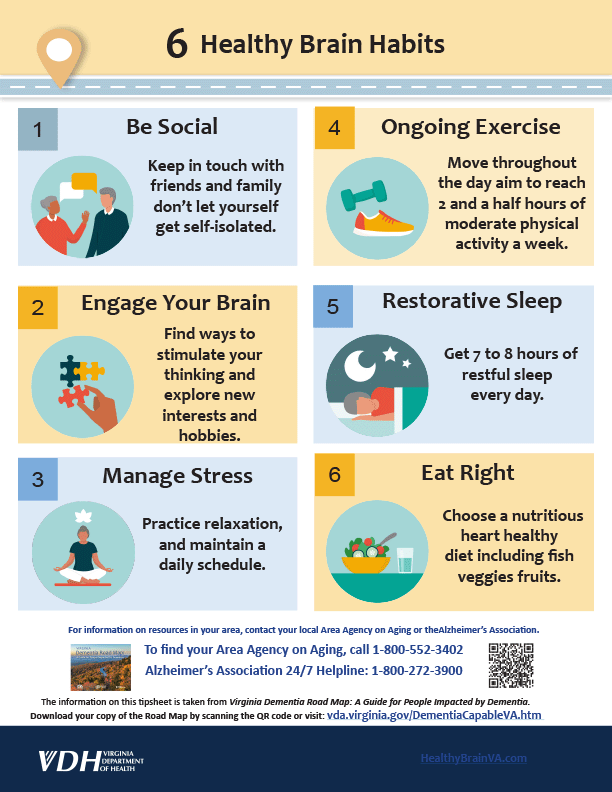
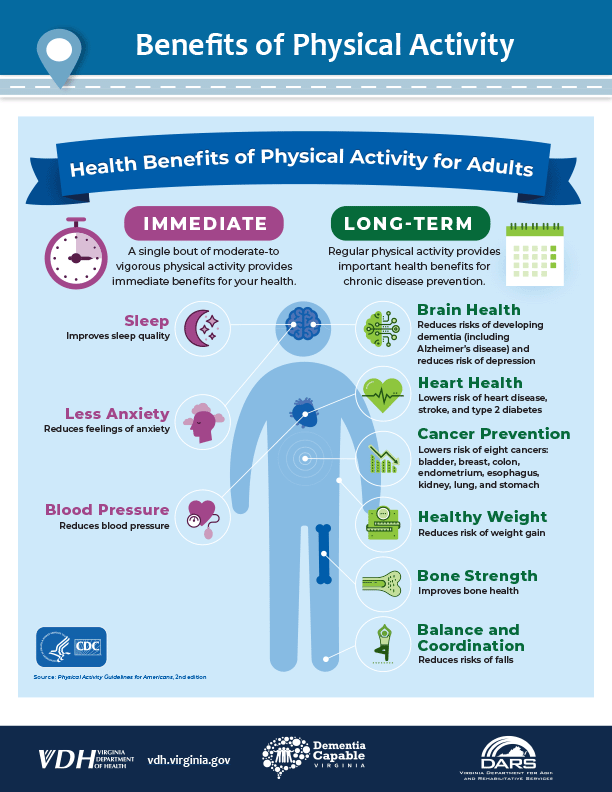 Benefits of Physical Activity
Benefits of Physical Activity
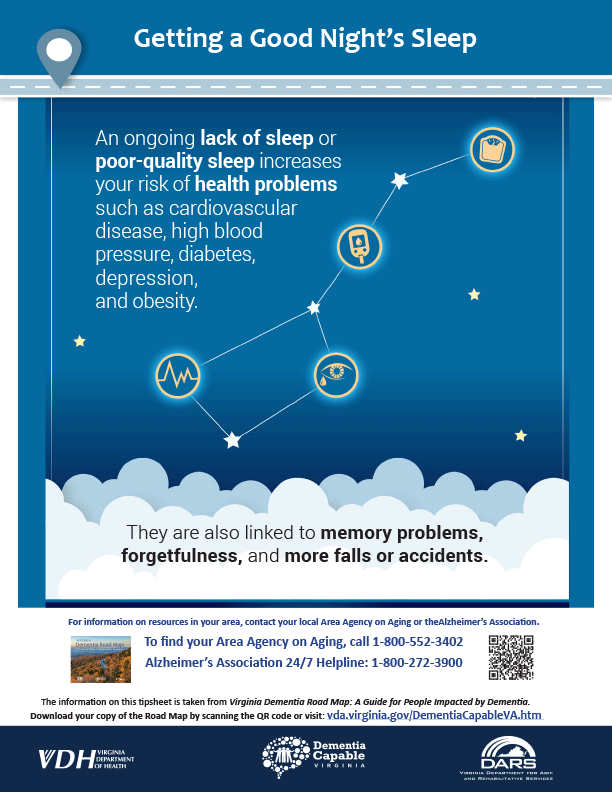 Getting a Good Night's Sleep
Getting a Good Night's Sleep
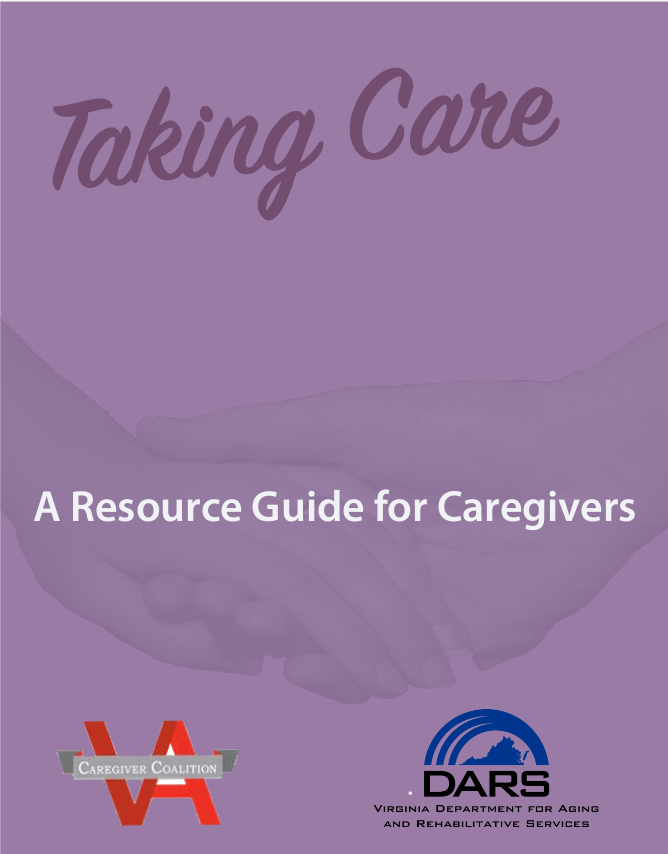
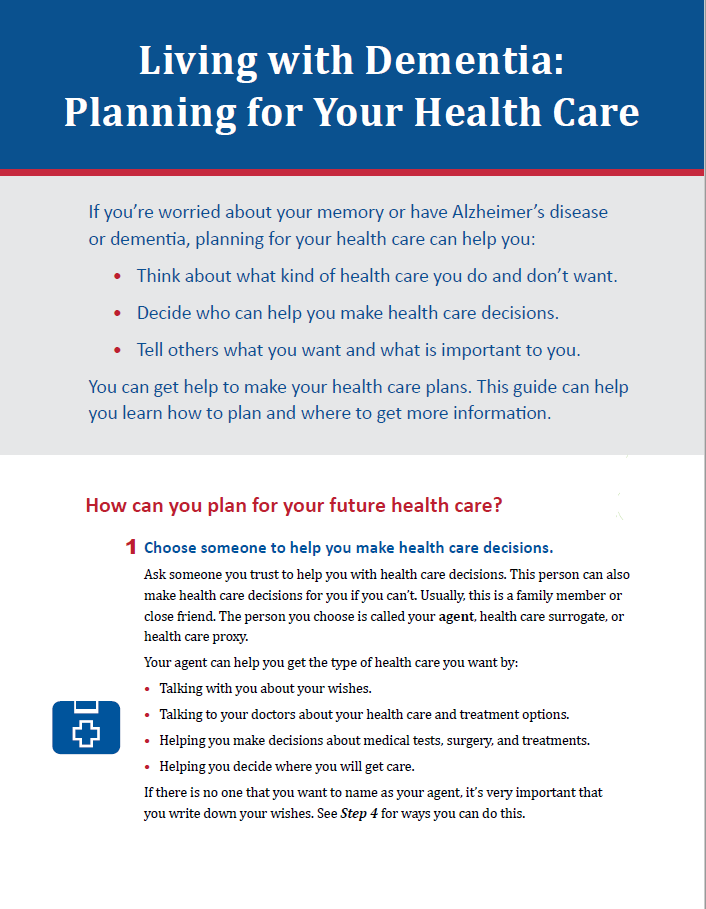 English
English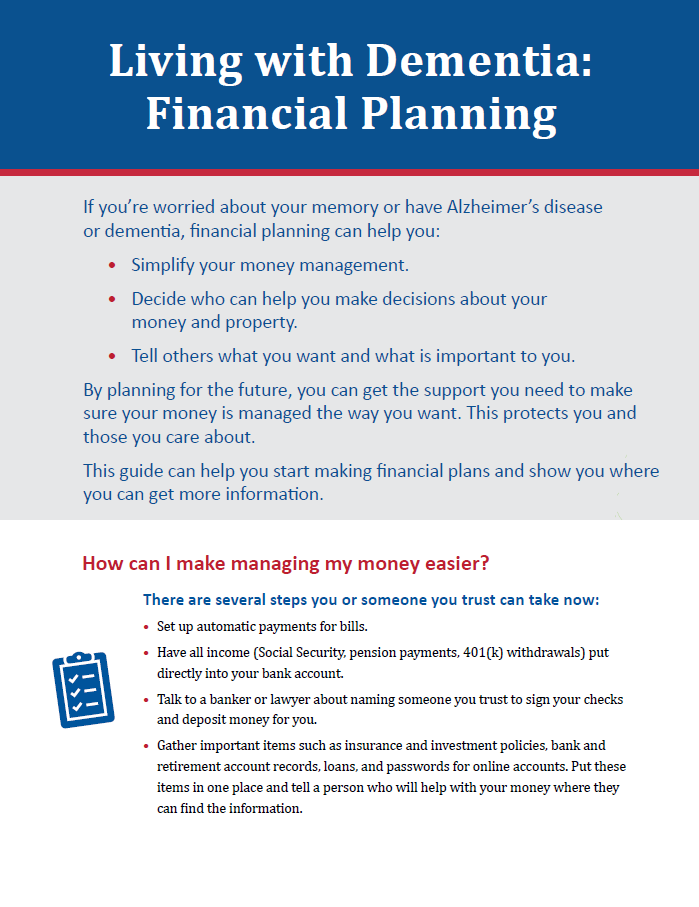 English
English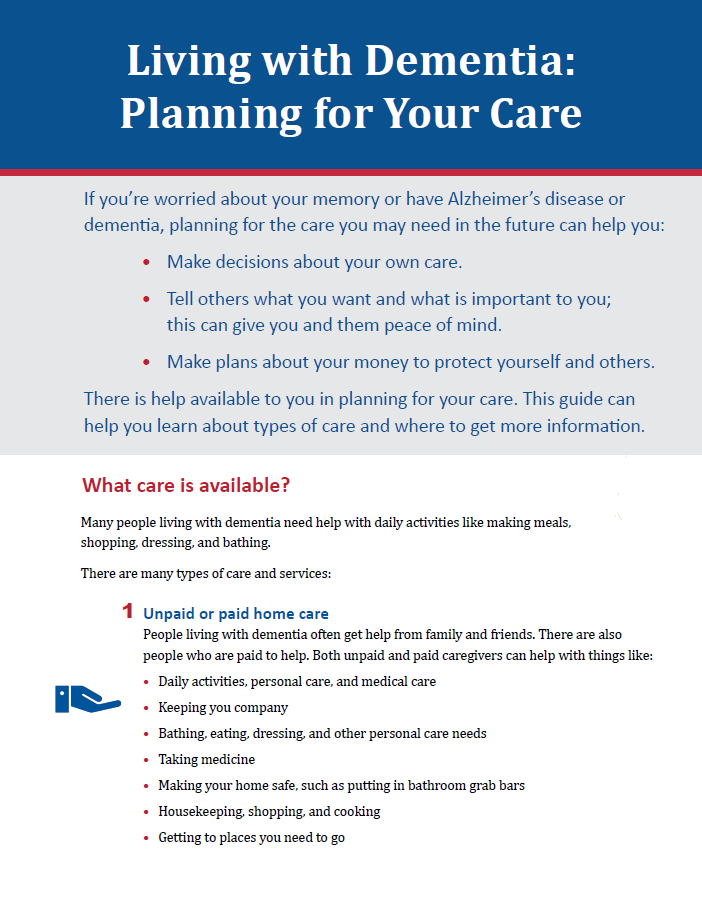 English
English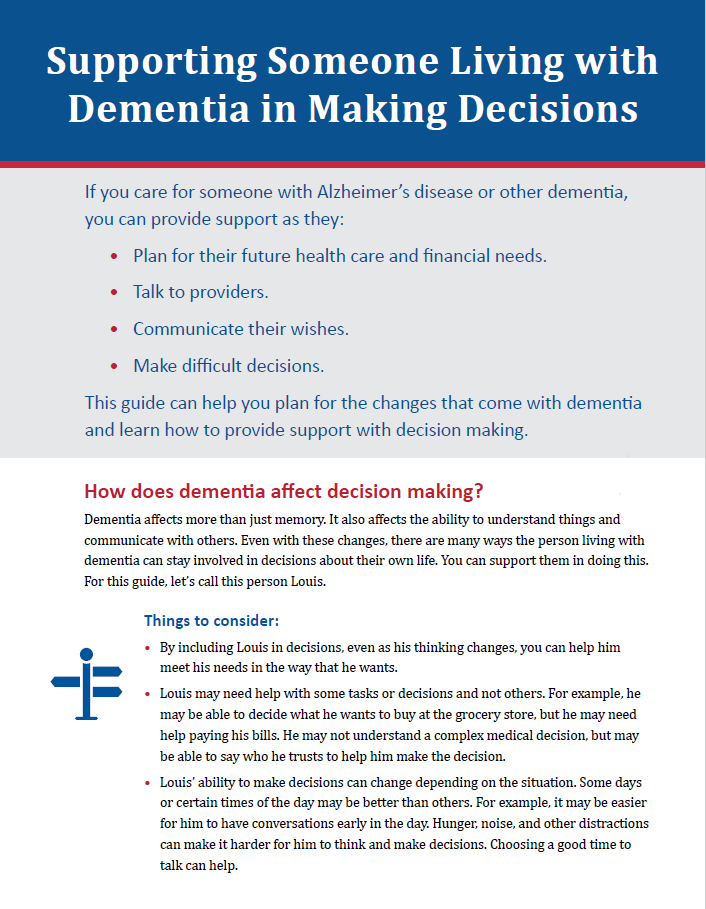 English
English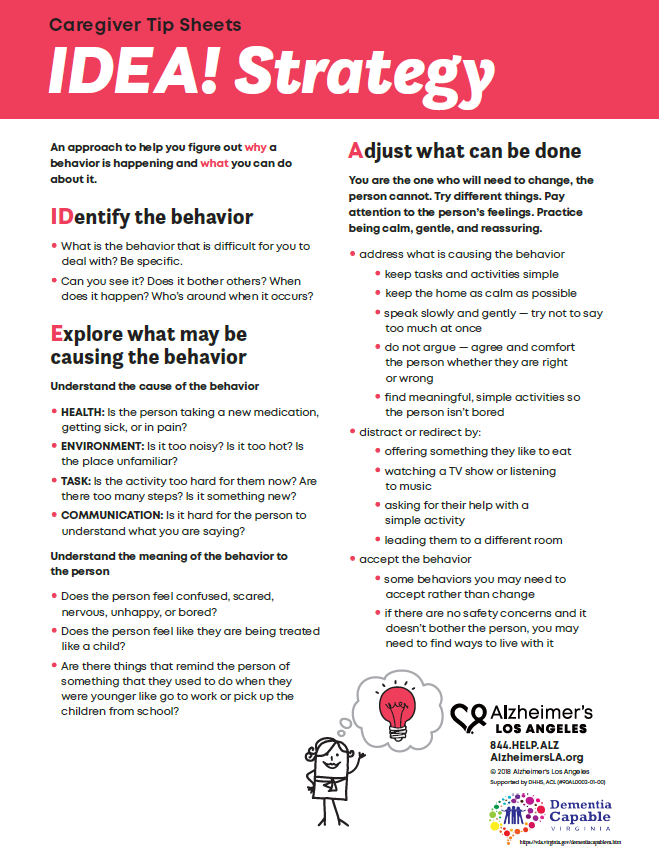 English
English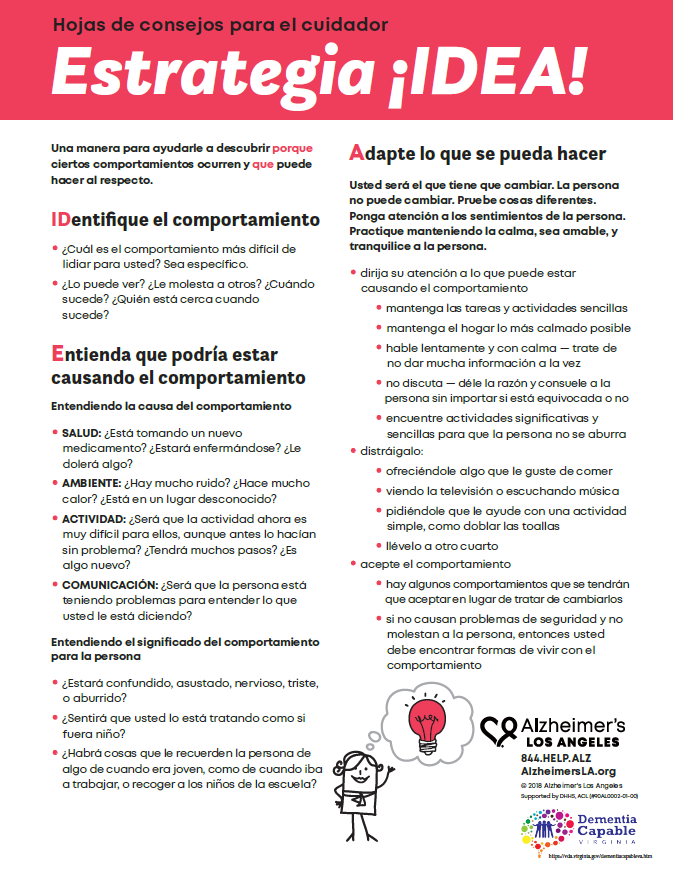 Spanish
Spanish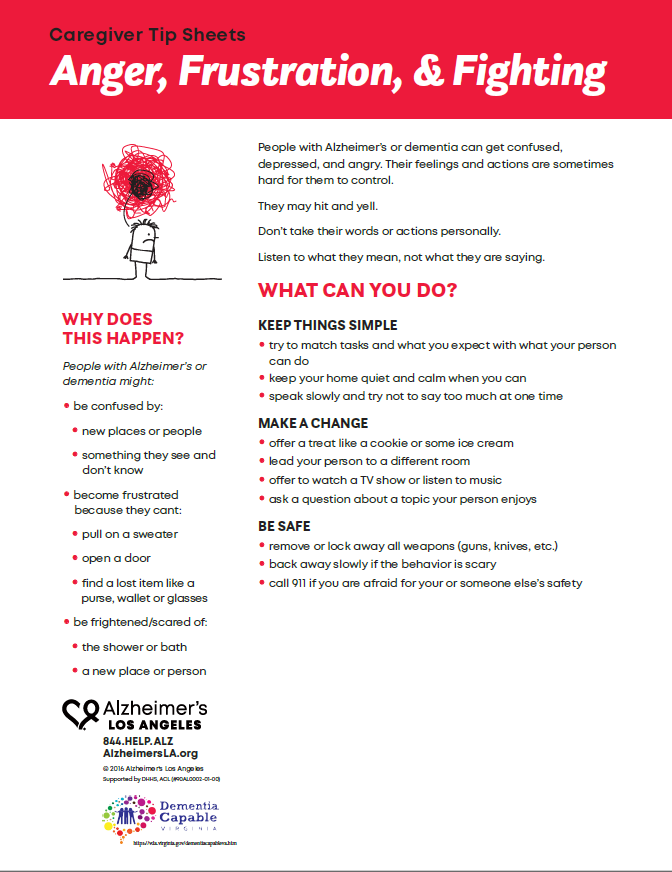 English
English
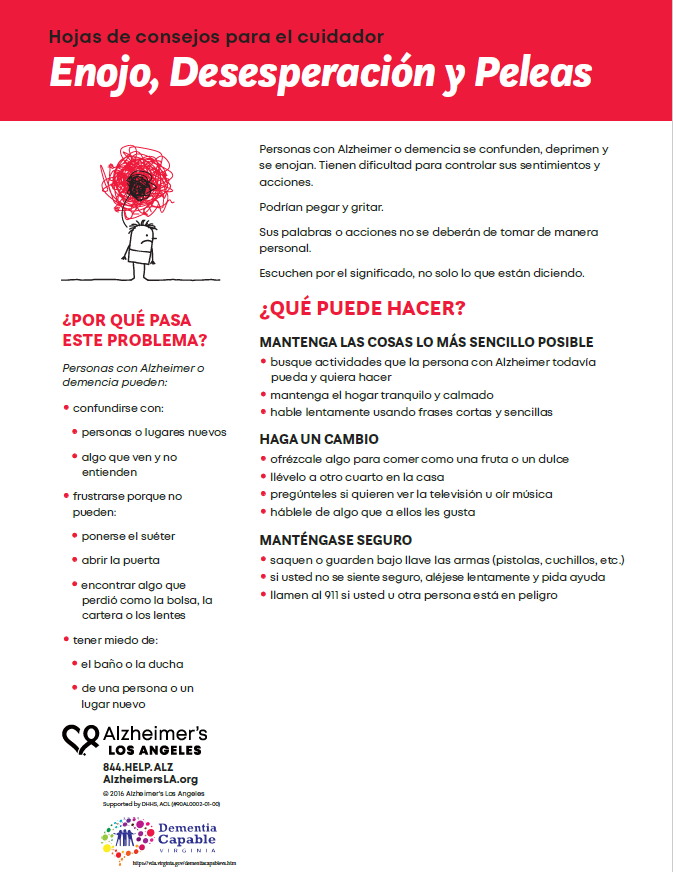 Spanish
Spanish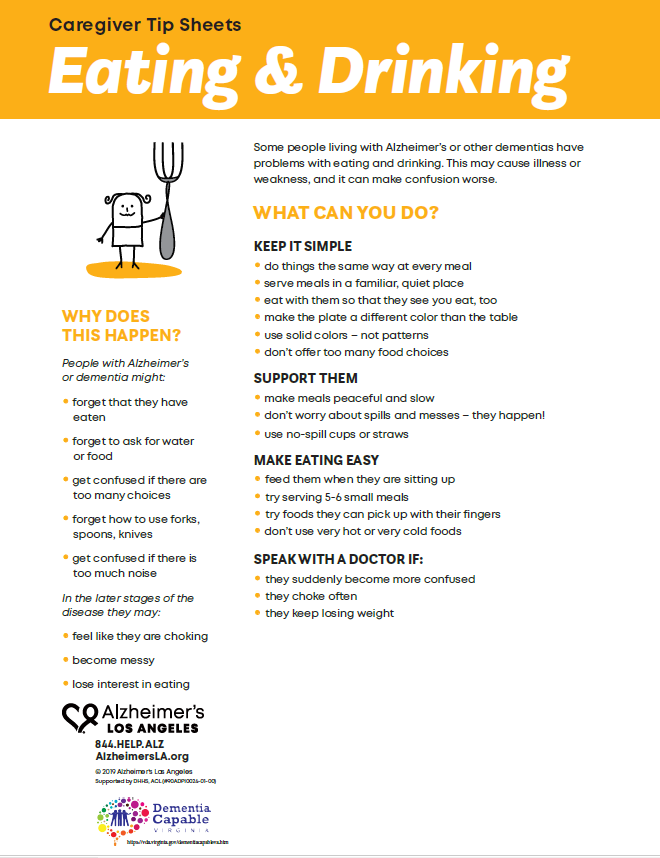 English
English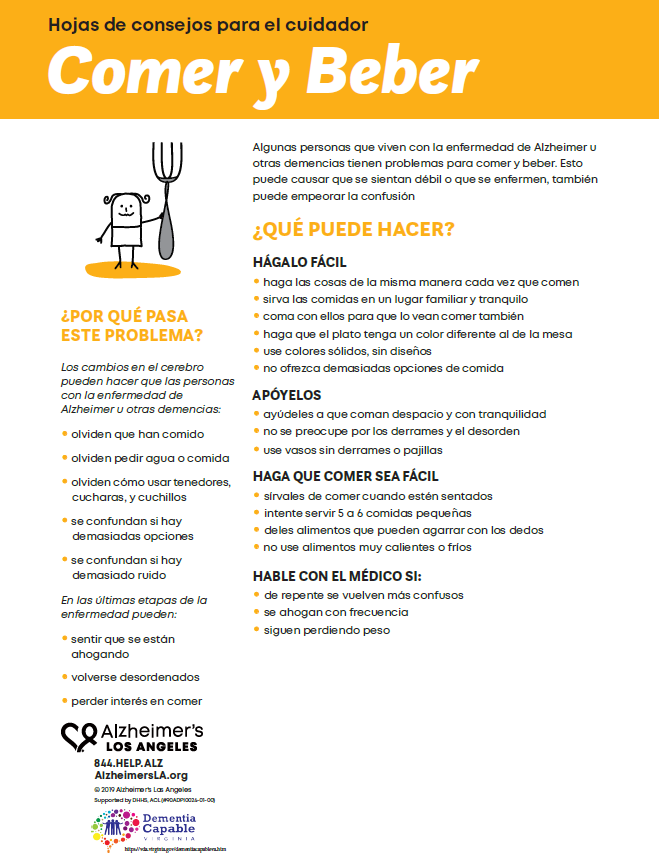 Spanish
Spanish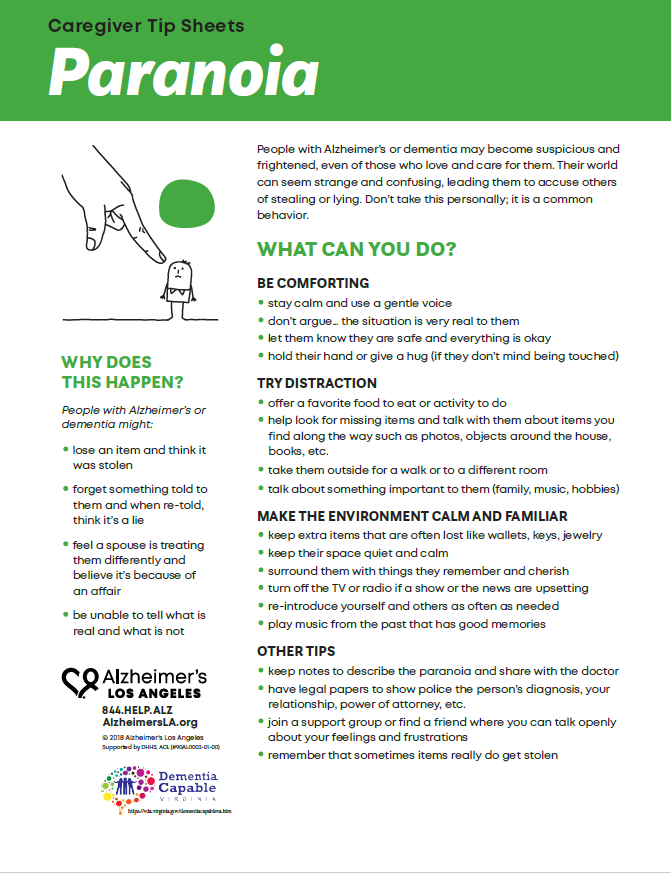 English
English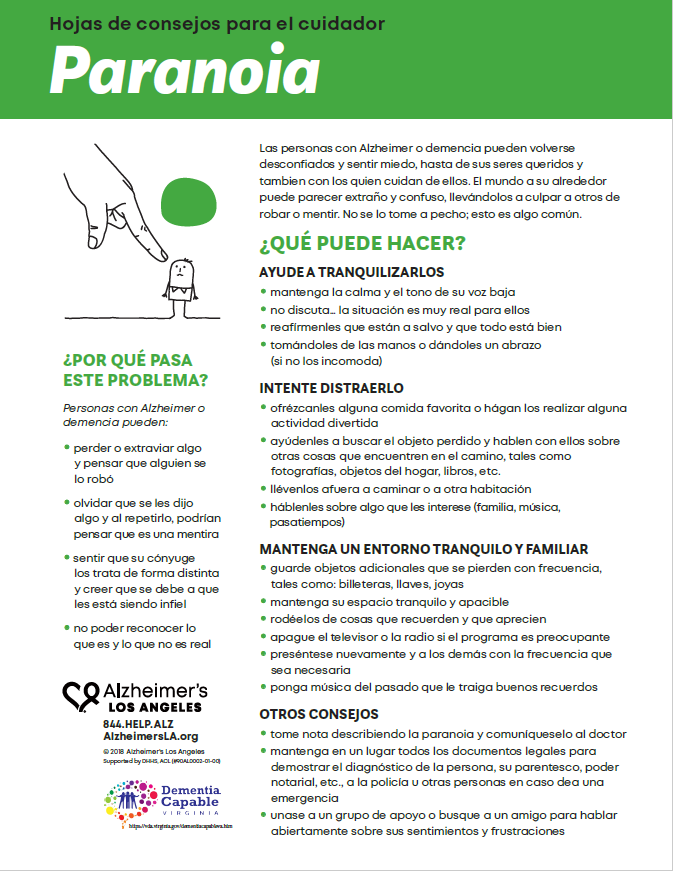 Spanish
Spanish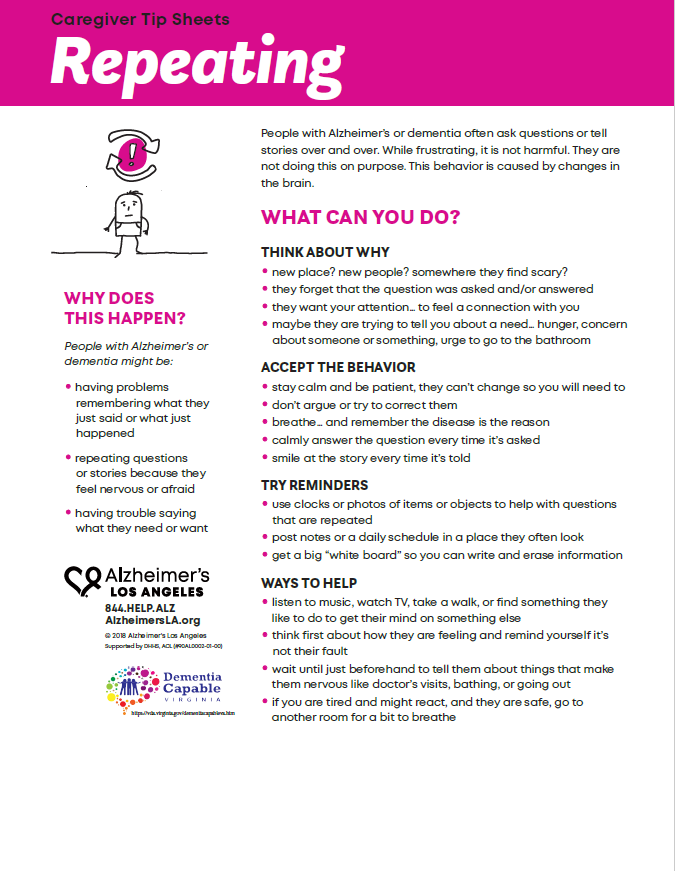 English
English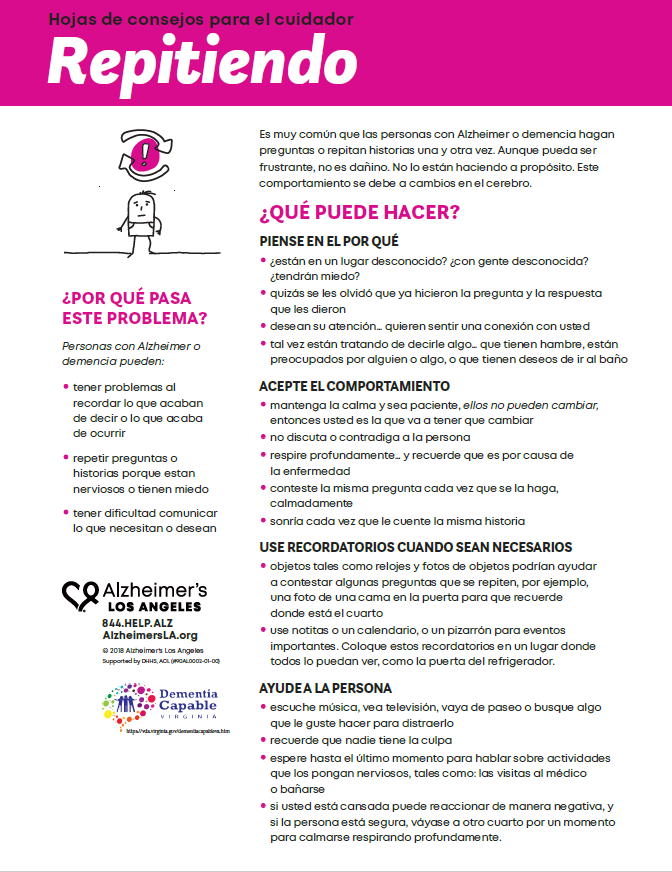 Spanish
Spanish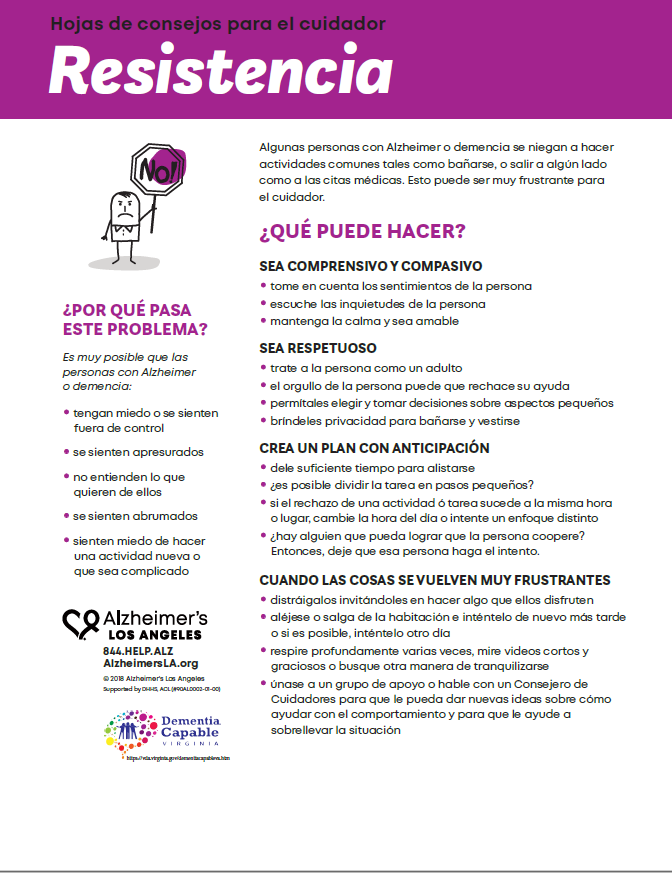 Spanish
Spanish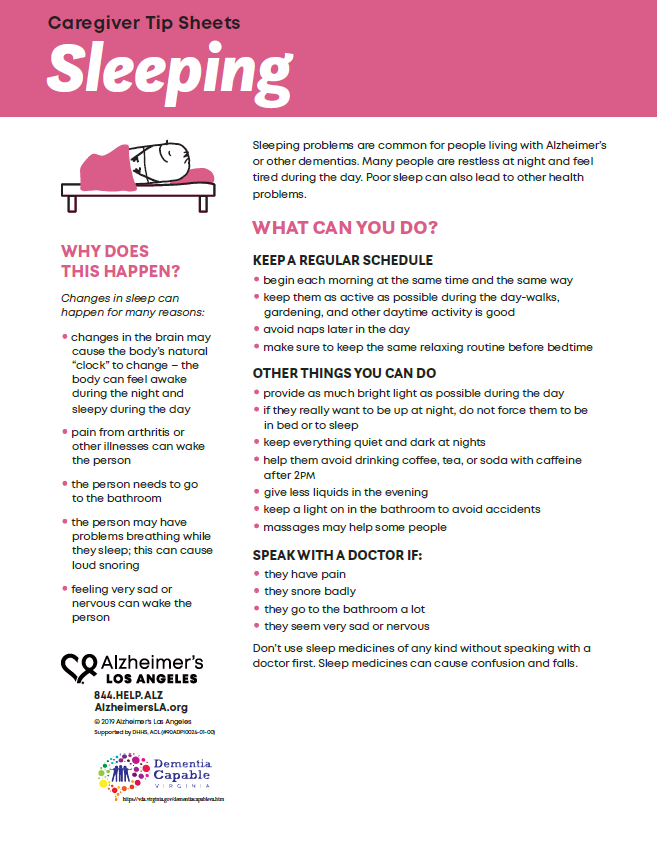 English
English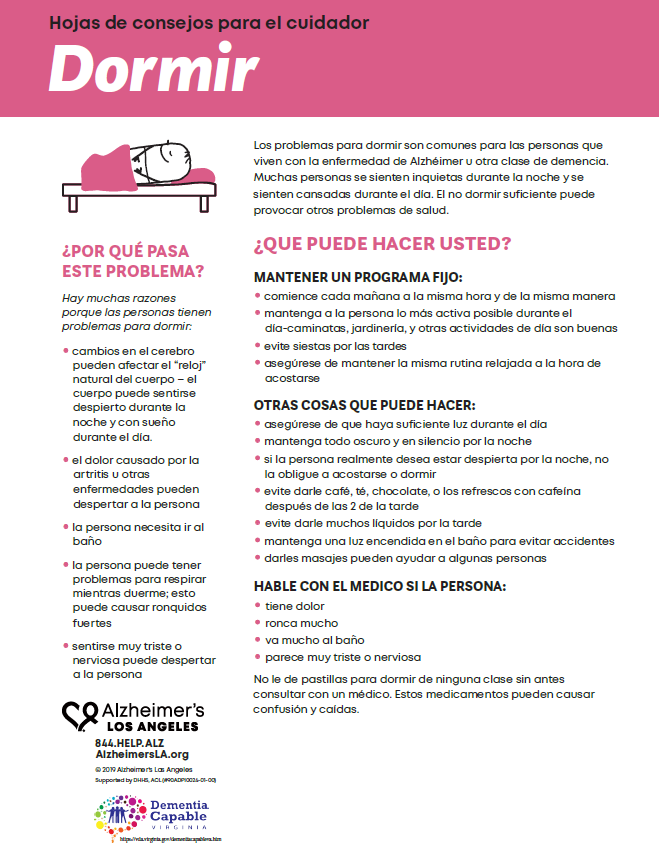 Spanish
Spanish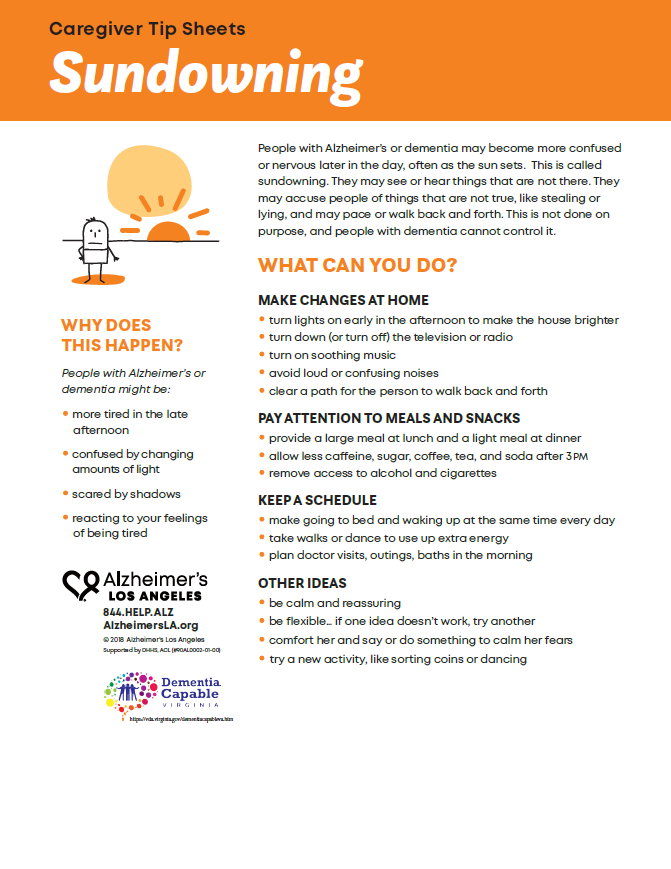 English
English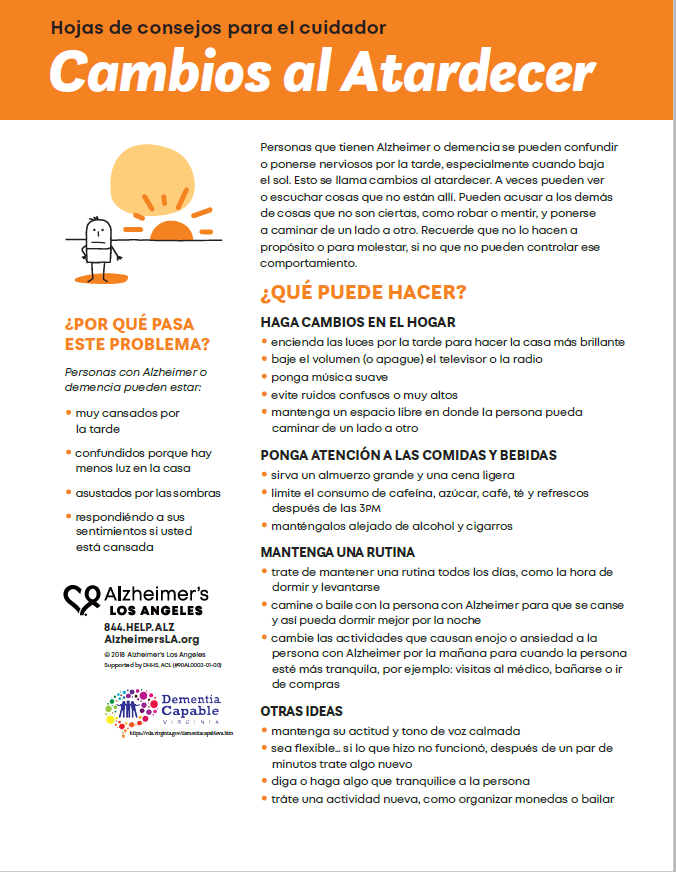 Spanish
Spanish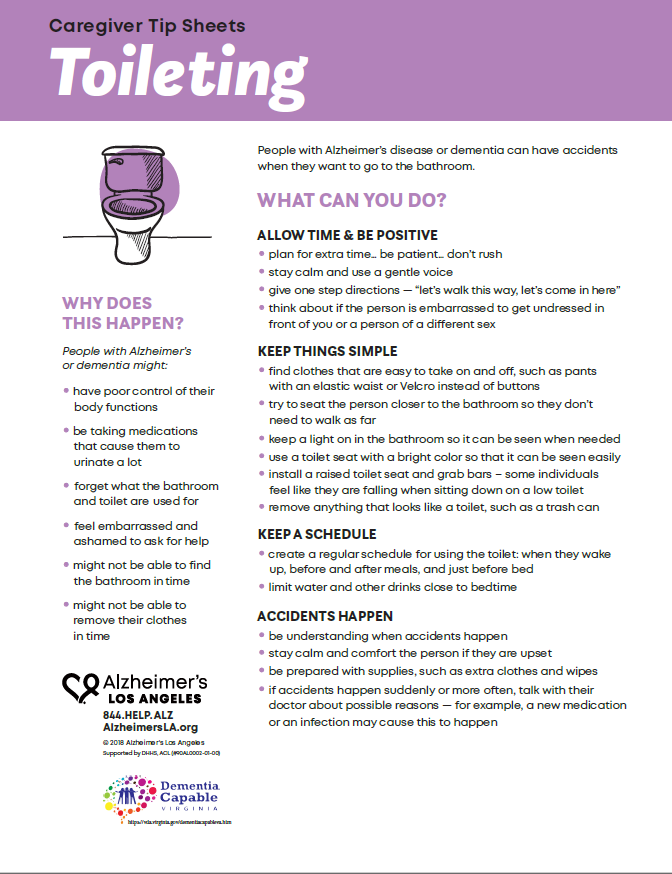 English
English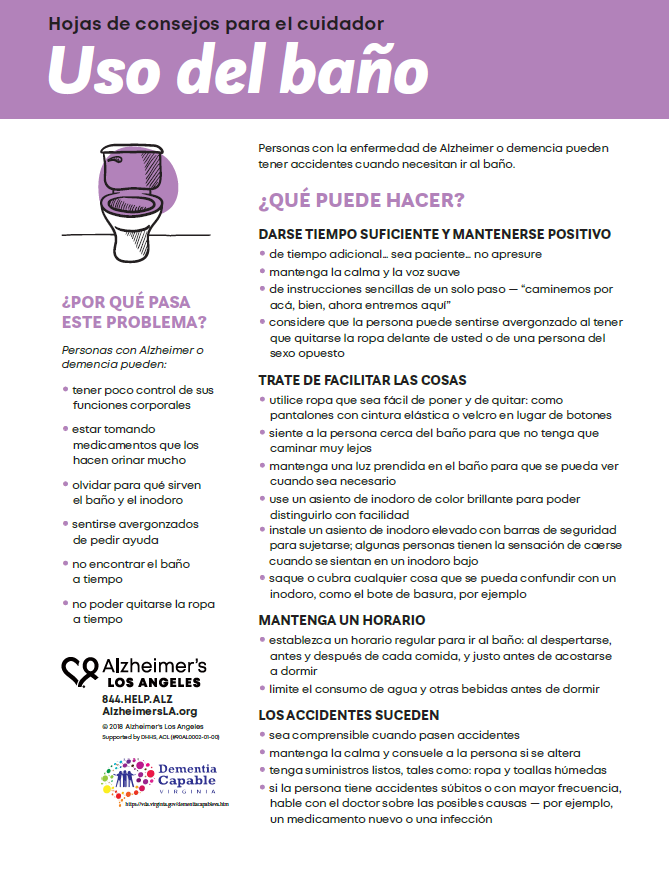 Spanish
Spanish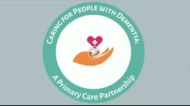 Let's Get Started (5 min, 26 sec)
Let's Get Started (5 min, 26 sec)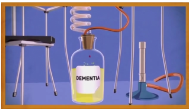 1. Demystifying Dementia (7 min, 38 sec)
1. Demystifying Dementia (7 min, 38 sec) 2. Sharing the Diagnosis (9 min, 9 sec)
2. Sharing the Diagnosis (9 min, 9 sec)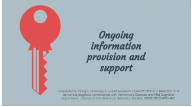 3. Providing Guidance (10 min, 4 sec)
3. Providing Guidance (10 min, 4 sec)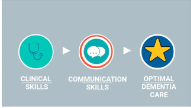 4. Communicating (9 min, 40 sec)
4. Communicating (9 min, 40 sec) 5. More than Meds (9 min, 5 sec)
5. More than Meds (9 min, 5 sec)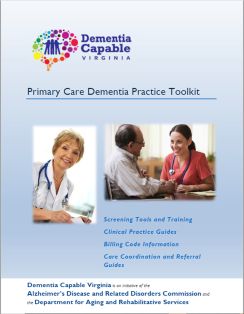
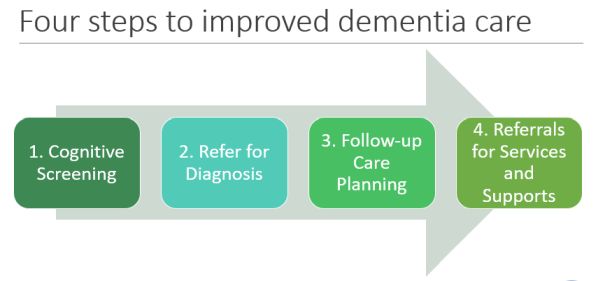
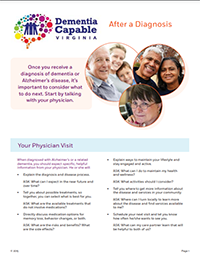 After a Diagnosis
After a Diagnosis






